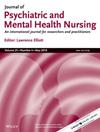Breaking the cycle: Exploring the relationship of metacognition beliefs, obsessive-compulsive symptoms, and psychosocial performance among individuals diagnosed with schizophrenia
Abstract
The Relevance to Mental Health Nursing
-
What the paper adds to existing knowledge?
- •
This study provides empirical evidence of the significant positive correlation between OCS and metacognitive dimensions in individuals with schizophrenia.
- •
It highlights the role of certain demographic factors, such as younger age and single marital status, in increasing the likelihood of elevated OCS.
- •
It underscores the inverse relationship between higher metacognitive dysfunctional beliefs and lower levels of psychosocial functioning.
- •
It identifies age and metacognitive scores as crucial predictors of psychosocial functioning across various domains.
- •
-
What are the implications for practice?
- •
The findings suggest that therapeutic nursing interventions for individuals diagnosed with schizophrenia should address metacognitive dysfunctional beliefs to improve overall functioning and well-being.
- •
Clinicians, including psychiatrists and psychiatric nurses, should consider the patient's age, marital status, and metacognitive scores when assessing the risk of elevated OCS and devising treatment plans.
- •
The study emphasizes the need for comprehensive psychiatric nursing assessment, including metacognitive dysfunction and OCS evaluation.
- •
-
What are the implications for future research?
- •
Future research could explore the causal relationships between metacognitive dysfunctional beliefs, OCS, and psychosocial functioning in schizophrenia.
- •
Longitudinal studies could provide insights into the progression of these relationships over time and the impact of therapeutic interventions.
- •
Further research could also investigate the effectiveness of specific therapeutic strategies such as Metacognitive Therapy (MCT), Schema Therapy (ST), Cognitive Enhancement Therapy (CET), and Cognitive Behaviour Therapy (CBT) to address this population's metacognitive dysfunctional beliefs.
- •
Background
Schizophrenia is a chronic mental health disorder that significantly impacts an individual's cognitive, emotional and social functioning. Recent research has highlighted the role of metacognitive beliefs and obsessive-compulsive symptoms (OCS) in the psychosocial performance of individuals diagnosed with schizophrenia. Understanding these relationships could provide valuable insights for developing more effective nursing interventions. This study aimed to investigate the relationship between metacognitive beliefs, OCS and psychosocial performance among individuals diagnosed with schizophrenia.
Design
A cross-sectional survey was conducted involving 174 purposively selected participants diagnosed with schizophrenia.
Tools
The Meta-Cognitions Questionnaire-30, Young Adult Self-Report Scale for OCS and Specific Level of Functioning Scale were used to gather the necessary data.
Results
The study found a significant positive correlation between OCS and metacognitive dimensions. Age was a significant predictor with an Oddis Ratio of 2.471. The metacognitive dysfunction was a highly significant predictor in univariate and multivariate analyses, with Oddis Ratios of 1.087 and 1.106, respectively. The study also discovered that higher levels of metacognitive dysfunctional beliefs were associated with lower levels of psychosocial functioning. Age and the metacognitive dysfunction score were significant predictors of psychosocial functioning scores, accounting for 26.8% of the variance in these scores.
Conclusion
The study reveals a compelling inverse relationship between higher metacognitive dysfunctional beliefs and lower levels of psychosocial functioning in individuals diagnosed with schizophrenia. It also identifies certain demographic factors, such as younger age, as significant contributors to elevated OCS. Importantly, metacognitive dysfunction emerged as a critical predictor of psychosocial functioning across various domains. These findings underscore the potential of incorporating metacognitive-focused interventions in the treatment plans for schizophrenia patients. By addressing these cognitive patterns, healthcare professionals can enhance overall functioning and well-being in individuals diagnosed with schizophrenia.

 求助内容:
求助内容: 应助结果提醒方式:
应助结果提醒方式:


